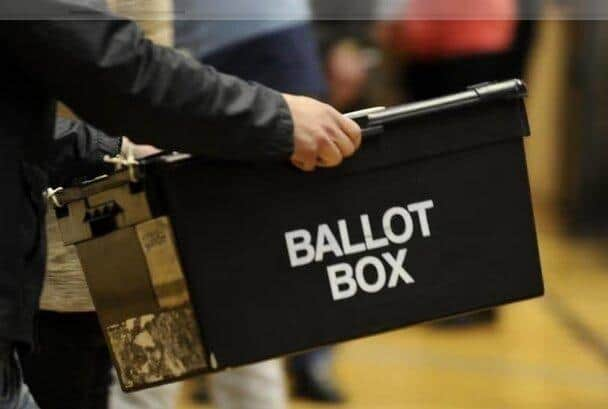Voter ID: deadline looms for Preston, Chorley and South Ribble residents without photo ID to get voter certificate for local elections
and live on Freeview channel 276
The polls taking place in districts including Preston, Chorley and South Ribble on 4th May are amongst the first where voters will be required to prove their identity before they can have their say over who they want to represent them.
It follows the introduction of controversial new rules nationwide, which were the subject of cross-party condemnation in Preston last year amid warnings that they could lead to violence if locals end up being denied a vote.
Advertisement
Hide AdAdvertisement
Hide Ad

Anybody wanting to cast an in-person vote at all future local and general elections in England will have to present one of the accepted methods of photo-bearing ID and the picture must still be a good likeness. Options include a driving licence, passport, older person’s bus pass and disabled parking blue badge.
Those without any of the documents on the full government list will instead have to apply for a new voter authority certificate - but must do so by 5pm on 25th April, more than a week before polling day.
Applications can be made online at gov.uk/apply-for-photo-id-voter-authority-certificate or by a voter requesting a paper form from the council area in which they live. You have to be already registered to vote in order to obtain the certificate - and the deadline for doing that has passed.
Back in December, then Preston City Council cabinet member Robert Boswell warned that the new arrangements could trigger anger that would be directed at polling station staff – not only from those who turn up without any ID, but also anybody whose proof is questioned.
Advertisement
Hide AdAdvertisement
Hide Ad“[They]…have to sit there and make a decision on whether that photo ID is that person [standing in front of them] – and that could lead to some traumatic experiences, [causing] arguments [and] violence. It’s unworkable,” Cllr Boswell predicted.
Previously, voters have just had to give staff their name in return for a ballot paper.
Deputy Labour council leader Martyn Rawlinson likened the rules to “demographic gerrymandering”, while Tory opposition leader Sue Whittam said that the policy was “unfair and definitely shouldn’t be coming in at this time”.
Liberal Democrat group leader John Potter noted that in previous trials of the system, a third of people did not bother to return with the necessary ID when they were refused a vote for arriving empty-handed or without an accepted document on their initial visit to the polling station.
Advertisement
Hide AdAdvertisement
Hide AdMeanwhile, in South Ribble in February, a meeting of the borough council heard that - at the time - six percent of the total number of eligible voters did not have suitable photo ID, but that the figure was far higher in areas like the Broadfield ward of Leyland, where it stood at 15 percent.
The government said in December that 98 percent of electors already have an accepted form of identification, with a spokesperson adding: “We cannot be complacent when it comes to ensuring our democracy remains secure.”
Two thirds of the near-600 allegations of voter fraud reported to the police in relation to every local and national poll held in the UK in 2019 were not investigated due to there being no – or at least a lack of – evidence, according to the Electoral Commission. Of the remainder, just four led to a conviction, while two individuals were given a police caution.